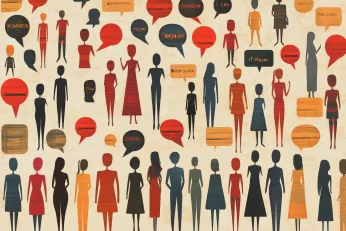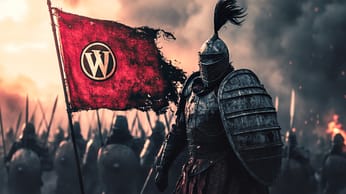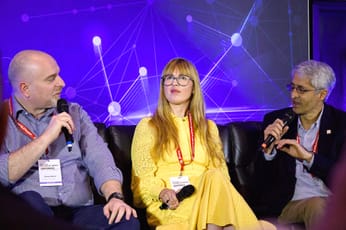
IndieWeb - Kevin Marks on the web that will win (LeWeb 13)
Can we reclaim the open web from the closed social silos? Kevin Marks thinks so…
Liveblog of Kevin Marks speaking at LeWeb Paris 2013.
Yesterday’s Web
We started with a web largely built on open source and the the LAMP stack. And then Internet Explorer swept in and started to dominate the web. Would Microsoft own the web? 10 years ago it looked like it.
But Firefox was beginning, the Webkit project was underway at Apple – and the first steps towards to HTML5 were happening. The seeds of the overthrow of Microsoft’s hegemony were sown.
The same year – 2003 – the Sidekick was sowing the seeds of mobile. There was Friendster, where Mark Zuckerberg was a keen user. But there was no real time web – Google updated its index once a month. This was know as the “Google Dance” as rankings changed. People accessed the web through portals and their homepage.
Blogging was picking up speed. Pages were updated in minutes, and pinged each other to create links. Technorati was indexing them in minutes – a lot faster than a month.
This web was built on open specs, by companies who interoperated.
Today’s Web
But then blogging was absorbed by silos – by Twitter, Facebook and Instagram.
The new devices arrived. iOS, Android and BlackBerry all had browsers first and the apps came later. Android is the biggest OS in the world, so we have open source on both servers and devices. Social is going the other way and getting locked down.
- Will apps replace the web? They’re just a very specialised browser that only reads one site.
- Is Facebook a new portal? Well, it’s beginning to feel like the Yahoo! of 10 years ago. “Yeah, everyone’s here but it’s not an exciting place any more”.
- Is mobile special? Desktop and mobile and tablets are all converging. The distinction of big screen and small screens is going away. We’re just habituated to doing different things on different devices.
What have we learnt?
- The open stuff outlasts companies. Protocols outlast the products they were built for.
- Open protects people. Your data doesn’t die when a site does.
- Open saves effort – when Apple built webkit, they set the seeds for Android, Chrome and the overthrow of Microsoft on the web
IndieWeb

The IndieWeb is a group of people who recognise that the silos are important for connecting – but you should have your own site. Don’t replace those tools, but use them to connect the rest of the web.
Its principles:
- You should own your own data. Have your own page, not a Facebook or Google one.
- You should have visible data. People can read it, programs can index it. You can’t crawl Facebook or Twitter any more.
- POSSE – Publish on your Own Site and Share Elsewhere. Spread links to your own stuff.
- Make tools for you, not for other people. If you wouldn’t use it, other people won’t. Odeo was a classic example: a podcast platform built by people who didn’t podcast
- Document what you do. Say what works – help other people by doing so. And Open Source what you make, because you get help and it ensures that what you do will last.
- Design and UX are really important. Don’t just add them on top of what you’ve built.
- Be modular. Don’t try to build everything – build pieces that plug together. It makes it easier to swap things out, or replace dead services.
- The Long Web – expect it to last, don’t destroy history and spread copies elsewhere.
- Bet on the web – open outlasts closed. Make infrastructure that others can build on.
Sign up for e-mail updates
Join the newsletter to receive the latest posts in your inbox.










